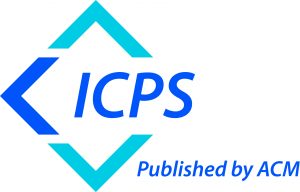This year, C&T introduces a new category of submissions: Case Studies.
With this category, we encourage C&T researchers or practitioners to present a case study or an experience report of real-world cases projects that provide new insights and learnings to other C&T researchers and practitioners. In general, both kinds of research are welcome – more analytical (such as ethnographical case studies and historical analysis of case) as well as more action-oriented (such as design case studies, action research reports). In addition, methodological reflections about case study research are appreciated.
What counts as a good case study research
Case studies should be inspiring, but should not be constrained by traditional academic expectations. The primary criteria is relevance in making a significant contribution to the community.
Successful case studies will meet the following criteria: they report on new work that derives in original insights, they have the potential for real impact on the C&T body of knowledge and practice, they report on very specific or singular communities or experiences.
They shed light into emerging and/or marginalized topics and address existing gaps in the broader C&T methods and understanding. Suggested topics of interest include, but are not restricted to:
- Technology design and use in the developing world and non-Western societies
- Research of a specific domain, user group, organisation or experience, discussing its rationale, any issues, and lessons learned
- Pilot studies preceding and informing larger-scale investigations
- Application, critique, or evolution of a method, process, theory, or tool
- Challenges to existing notions of Research, Design, Theory, and Practice
- Revisiting definitions of C&T practice
- The role of technology in civic activism, community engagement, participatory publics
- The role of technology in the context of the refugee and migrant crisis
- The role of technology in consumer empowerment (supply chain transparency, open data, etc.)
- Sharing and commoning practices (communities and the sharing economy and/or commons-based production)
Other more specific areas of interest:
- Uses and misuses of technology by communities
- New maker practices
- Technology in humanitarian crisis contexts
- Decentralisation and blockchain
- Gender and technology
- HCI teaching and learning in education, training, or knowledge sharing.
- ‘Big Ideas’ and how to make them happen
Preparing and submitting your case study
Case studies must be submitted via EasyChair by February 15, 2017 *extended*.
The Case Study submissions must be reported using the ACM recommended templates, should not exceed 5 pages, and can include supplementary material in the form of pictures, videos, documents, websites, etc. If supplementary materials are submitted, we request authors to include a list of the supplementary documents in their submission and a description of the nature and purpose of each item.
Submissions will undergo a peer review process by the Program Committee members. Accepted case study reports will be published in the Proceedings, together with long and short papers.
You can contact our proceedings’ chair, Matthieu Tixier (matthieu.tixier [at] utt.fr) if you need any help.
If you have any problems with the templates, please contact ACM’s TeX support team at Aptara (acmtexsupport@aptaracorp.com).
Upon acceptance of your contribution
Authors will be notified of acceptance or rejection on April 15, 2017. Authors of accepted submissions will receive instructions on how to prepare and submit the camera-ready version. These will be due on May 1, 2017.
The proceedings are part of the International Conference Proceedings Series published by ACM.
Papers should be submitted using the ACM recommended templates, and should be submitted via EasyChair.
Please note that the ACM templates have changed recently and the ressource link provides you now with an archive of the full catalog of ACM templates. Among them, please use the SigConf proceedings template which is the correct template to use for the International Conference Proceedings Series published by ACM. You are free to use the text editor toolbar/plugin provided by the ACM, as well as to use the ACM_SigConf sample file provided for your convenience in the “ACM Sample Files” folder. You can contact our proceedings’ chair, Matthieu Tixier (matthieu.tixier [at] utt.fr) if you need any help.

Please send any questions to the Case Studies Chairs.
Mara Balestrini, Gunnar Stevens
casestudies@comtech.community
